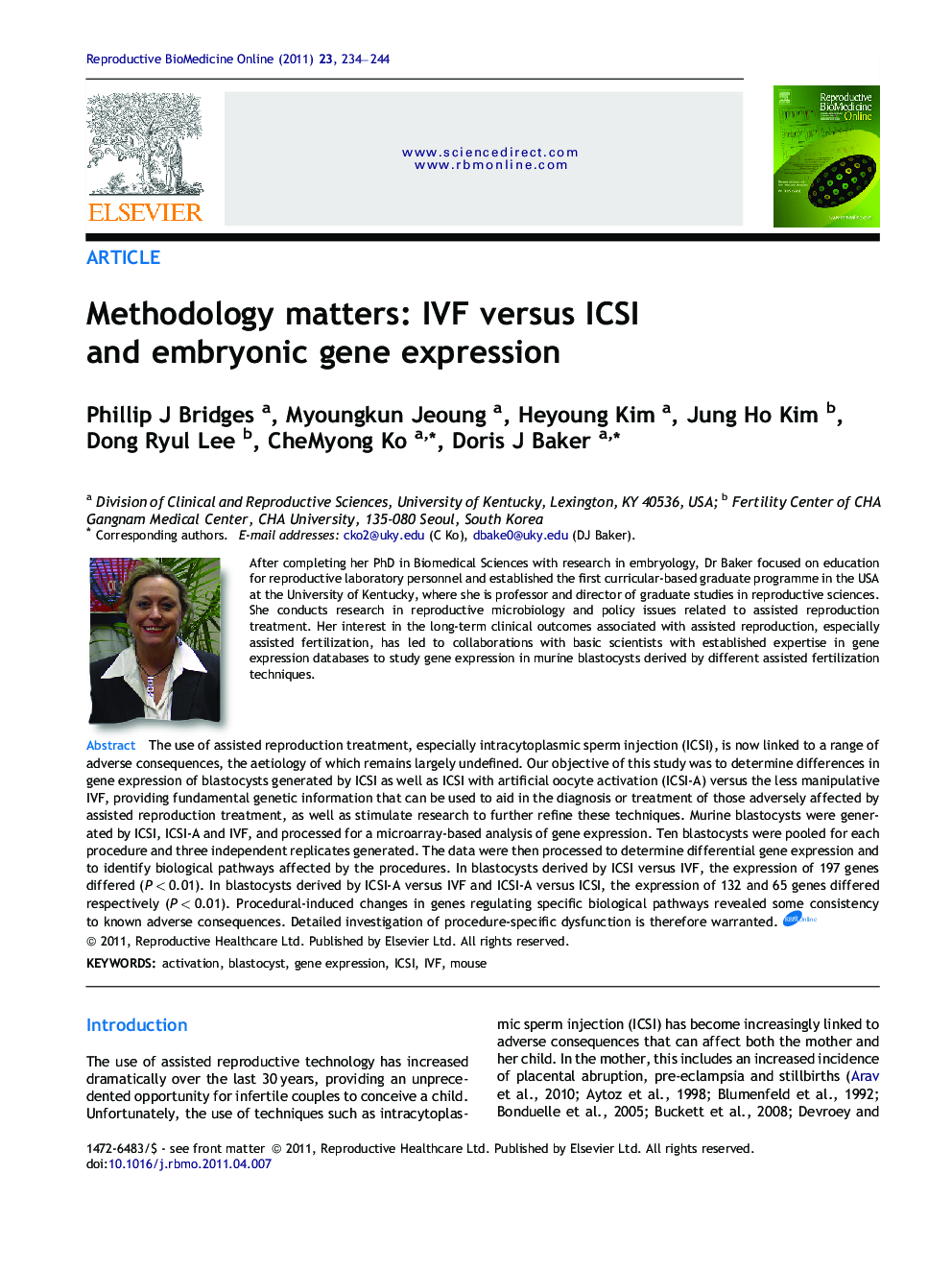| کد مقاله | کد نشریه | سال انتشار | مقاله انگلیسی | نسخه تمام متن |
|---|---|---|---|---|
| 6189218 | 1256752 | 2011 | 11 صفحه PDF | دانلود رایگان |

The use of assisted reproduction treatment, especially intracytoplasmic sperm injection (ICSI), is now linked to a range of adverse consequences, the aetiology of which remains largely undefined. Our objective of this study was to determine differences in gene expression of blastocysts generated by ICSI as well as ICSI with artificial oocyte activation (ICSI-A) versus the less manipulative IVF, providing fundamental genetic information that can be used to aid in the diagnosis or treatment of those adversely affected by assisted reproduction treatment, as well as stimulate research to further refine these techniques. Murine blastocysts were generated by ICSI, ICSI-A and IVF, and processed for a microarray-based analysis of gene expression. Ten blastocysts were pooled for each procedure and three independent replicates generated. The data were then processed to determine differential gene expression and to identify biological pathways affected by the procedures. In blastocysts derived by ICSI versus IVF, the expression of 197 genes differed (PÂ <Â 0.01). In blastocysts derived by ICSI-A versus IVF and ICSI-A versus ICSI, the expression of 132 and 65 genes differed respectively (PÂ <Â 0.01). Procedural-induced changes in genes regulating specific biological pathways revealed some consistency to known adverse consequences. Detailed investigation of procedure-specific dysfunction is therefore warranted.The use of reproductive manipulations including intracytoplasmic sperm injection (ICSI) has become increasingly linked to a range of adverse consequences, the cause of which remains largely undefined. Adverse effects include complications of pregnancy and parturition in the mother, as well as a range of birth defects in her offspring. The objective of this study was to determine differences in the gene expression of blastocysts generated by the major reproductive techniques: ICSI and ICSI with artificial oocyte activation (ICSI-A) versus the less manipulative IVF. In ICSI and ICSI-A, the head of a spermatozoon is directly injected into the mouse oocyte. Determination of differences in gene expression will provide novel information that can be used to aid in the diagnosis or treatment of those adversely affected by these procedures, as well as to stimulate research to further refine these techniques. Blastocysts were generated by performing ICSI, ICSI-A and IVF, using gametes collected from mice. The blastocysts were then processed for a microarray-based analysis of gene expression. Ten blastocysts were pooled for each procedure and three independent replicates generated. The data were then processed to determine differential gene expression and to identify biological pathways affected by procedure. Procedural-induced changes in the gene expression of blastocysts were observed. Classification of differentially regulated genes into biological pathways revealed consistency to known adverse consequences. Further investigation of procedure-specific treatment-induced dysfunction is needed.
Journal: Reproductive BioMedicine Online - Volume 23, Issue 2, August 2011, Pages 234-244